Media Center
Table of Contents
Quotes from Media Interviews and Profiles (a few among hundreds)
New York Times, Fair Prices for Farmers: Simple Idea, Complex Reality: Still, the fair trade system, which is independent of the food industry, carries weight in the mind of Shel Horowitz, a writer in Hadley, Mass.
(Note: Shel has been quoted in at least four New York Times articles, two of which are excerpted/linked here. He has also published several New York Times letters—the first time, as a 17-year-old college freshman, in 1974.)
Forbes, Why CSR? The Benefits Of Corporate Social Responsibility Will Move You To Act: Shel Horowitz, a CSR consultant who says he practices what he preaches, says, “For the past ten years or so, I’ve been very publicly touting the benefits of eco/social responsibility—in my books, articles, blog, and speeches. I don’t think it’s a coincidence that during this period, my business underwent significant growth in average per-client revenue and total revenue.”
Entrepreneur, Five-Step Guide to Marketing a Business As Green: The best way to avoid these claims, according to Shel Horowitz, CEO of Greenandprofitable.com, is to keep messages consistent and support every claim with incontrovertible evidence.”Transparency and honesty is the best approach,” he says. “If you’re accused of greenwashing and there’s some stick to it at all, you’re dead.” (Note: Shel has been quoted in at least 21 articles in Entrepreneur, 3 of which are excerpted/linked here.)
Inc, Why the Supreme Court’s Ruling in Favor of a Colorado Baker Has Some Unlikely Cheerleaders “While I thoroughly disapprove of [Jack] Phillips’s values, I fully respect his right to run his business in accordance with those values, just as I reserve the right for myself,” says Shel Horowitz, a marketing consultant and founder of the firm GreenAndProfitable.com. He notes that while the ruling, at face value, seems unfair to gay and lesbian patrons, the logic of the Court’s decision is solid; it similarly protects entrepreneurs who object to serving, say, openly racist clientele.
(Note: Shel has been quoted in at least 6 articles in Inc.)
Los Angeles Times, Marketing on a budget: Advice for small businesses: Form a marketing partnership with a business that already reaches your target customers. “Results can be impressive, because you come in as a trusted partner of an established brand, and it costs you nothing,” said Shel Horowitz, coauthor of “Guerrilla Marketing Goes Green.”You can also join forces with other small companies to form a larger marketing entity, Horowitz said. Social media is essentially free and you can use it to build long-term relationships with potential customers as well as to announce promotions and new products.
Entrepreneur, Cause to Celebrate: Some PR firms strive to make a difference by promoting causes as well as products: “There’s a much deeper awareness that business cannot be divorced from values,” says Shel Horowitz, a Hadley, Massachusetts, author of several marketing books… “[Consumers] are realizing [they] have the power and the right to demand accountability. Businesses are realizing it’s smart to have good principles.”
New York Times, Doing Well in Your Career by Doing Good Outside It: Wherever you volunteer, branding yourself as a person who cares makes you a better job candidate, said Shel Horowitz, a marketing consultant… “It says to an employer: If you hire this person, you can trust them.”
Entrepreneur, How to Determine Which Eco-Friendly Changes Your Business Should Make: Hadley, Mass.-based Shel Horowitz, a green marketing consultant and author of Guerrilla Marketing Goes Green, agrees. “Start with the low-hanging fruit,” he says. “Do the easy, inexpensive things first and use the savings to fund bigger improvements.”
Shel is always a perfect talk show guest: Insightful, funny, pithy, and punctual. On his most recent interview with me, he did a very perceptive analysis of communicators ranging from Donald Trump to Martin Luther King to Michelle Obama.
Thanks so much, Shel, for being a guest on the Be Legendary Show. You were so inspirational to help listeners to believe they have a power to make a difference in the biggest issues affecting the planet. It feels great knowing there are people like you who are proactively seeking solutions today to make a better world for tomorrow. I loved having you on the show!
It is quite the honor to know a man so dedicated to the prosperity of our planet and the people who live on it. It's very reassuring to have people like Shel working so hard to create a clean, healthy, peaceful society. Not only does he motivate and inspire, he provides practical and real-life applications of his subject matter. He doesn't just talk about what he does, he shows you how you can do it too, and why you should. Shel gives hope to those of us who feel like we are fighting an uphill battle against environmental destruction, corporate greed, and social injustice. A genuine hero in my eyes. I'm proud to say I know him.
As a TV talk show guest, Shel Horowitz is as good as it gets. Shel is knowledgeable, flexible and willing to share the details that make the show a hit for the host and viewers. Shel's so good that I look for opportunities to have him on and enjoy every minute that I spend interviewing him. Shel is in the top ten of the hundreds of the guests I've had on my show, along with Jack Canfield.
What distinguished you among the annals of my best guests was not just your energy and enthusiasm - but your dedication to building the better world and alleviating its most critical problems in the context of profitability and business growth for all. May your vision succeed!
Shel was my guest on Good and Green Radio, and WHAT A FANTASTIC SHOW & GREAT GUEST! You can listen to Shel on GGR to get a taste for how passionate, inspirational, & motivational he is when speaking about sustainable, ethical, profitable business. He inspired ME to go out and speak on this topic, too, & I've already had two independent bookstores order several copies of Guerrilla Marketing Goes Green to have available on the shelves for my local audiences.
Major Media that Have Covered Shel Horowitz and/or
Going Beyond Sustainability (highlights)
Photos
“Like all of the best Guerrilla Marketing books, this one is powerful, direct and simple. Unlike the other ones, this book also heals our communities, fortifies the planet and helps you build an enterprise for the long haul. Just in time.”
—Seth Godin
Video Endorsements of Shel's Work
Interview Q&A
First, we finally know how to solve hunger, poverty, and climate change. For the first time in history, we have technology AND resources that can really make a difference in hunger and poverty and at the same time actually reverse the negative human impact on the environment.
Turning war into peace or undoing racism and other kinds of discrimination feels harder—until you remember that many wars and prejudices are based in conflicts over resources. So when you replace finite resources with infinite ones while taking a population out of poverty, a lot of the motivations for war and hatred go away. Even many of the wars we think of as ethnic or religious conflicts—often that’s grafted onto a framework where at least one of those populations feels the other is cutting them off from what they need. Solving those still needs a lot of human to human dialogue and peacemaking, but it’s a lot more doable if you’re not fighting over energy, or water, or bauxite, or jobs, or whatever.
I’ve always had a passion to make the world better. I’ve been an activist since I was 12, but I hadn’t really brought it into my work life. Then, in 1999, a developer decided to wreck our local mountain with a big housing development. The so called experts were wringing their hands and moaning, “this is terrible but there’s nothing we can do.” For me, that was the red flag in front of the bull. I wasn’t going to accept it. So my wife and I organized Save the Mountain. We thought it would take five years to beat the project, but the group got thousands of people involved, and we won in 13 months flat.
After we won, I realized that this campaign used not only everything we knew about community organizing, but also everything we knew about marketing. So I started to look for ways to braid the marketing and activist sides together in my career. I became a very public advocate of green and ethical business practices, wrote four books on this—the latest is my tenth book, Guerrilla Marketing to Heal the World—and started giving my “Making Green Sexy” talk throughout the US and abroad.
Then, in 2013, with help from a very gifted business coach and a bit of divine guidance, I got the idea to go much bigger. Why settle just for green business profitability? Could I really heal the world on a deep level, and make a living at it? Could I live with myself if I didn’t try? At age 57, I finally knew what I wanted to do when I grew up. So, starting in 2013 with the strongest sense of purpose I’ve ever had, I’ve spent the past few years creating the systems and materials to do this. It’s so exciting! It could be my legacy.
- Dean Cycon, CEO of Dean’s Beans. Not only has he been 100% organic and fair trade since the day he opened, but he turns 50% of profits back into village-initiated and village-run community development projects.
- d Light, creating a ladder out of poverty by replacing toxic and fire-prone kerosene lamps with solar LED lanterns that never need fuel.
- Kengaru, creating empowered mobility for people who don’t walk, with tiny little earth-friendly electric powered wheelchair cars.
- Ben & Jerry’s and The Body Shop were founded in social and environmental commitment—and I say that’s why they were so successful against the odds.
- Dove’s amazing campaign around girls’ self image and empowerment.
- Patagonia, brave enough to ask people if they really need to buy another product.
Absolutely! I offer a range of both do-it-yourself resources and do-it-for-you help, specifically customized for your organization, your situation, and your goals. And often, the solutions can be surprisingly affordable.
Do the easy things first. There are so many actions we can all take that cost little or nothing, are easy to implement, and make a significant difference. A few examples:
- Use 100th of the water most people use to brush your teeth or wash a dish or water a lawn.
- Switch to two sided printing—and encourage people to zoom the view on their monitors so they need to print less. (I keep mine at 150% in Word.)
- Solicit program and product ideas from employees.
- Organize a weekly farmers and artisans market at your workplace, and invite indigenous people to come and sell their wares.
- Match your employees’ charity donations and provide ways for them to donate time during work hours.
- Then go deeper! Look systematically at every aspect of your business. Where are the opportunities to serve and also make a profit? What processes could be streamlined to use resources more efficiently? How can the waste you produce become raw material for something else—or even a product you could sell to soeone else?
Of course! I’m happy to help you and your staff (including your marketing team):
- Develop new products, services, and markets
- Find partners who already reach your best audience
- Get media coverage and build your social media presence
- Develop effective presentation and media interview skills
- Learn more about how to flourish through regenerative, sustainability, and thrivability practices—and get the full marketing and profitability benefits from these initiatives
Remember—you don’t have to do it alone.
I’ve got several cool giveaways at https://goingbeyondsustainability.com/#Freebies, including a nice sampler from my award-winning 10th book Guerrilla Marketing to Heal the World, a link to my TEDx talk, “Impossible is a Dare! Business For a Better World,” a copy of my $9.95 E-book, Painless Green: 111 Tips to Help the Environment, Lower Your Carbon Footprint, Cut Your Budget, and Improve Your Quality of Life With No Negative Impact on Your Lifestyle, and several others.
Just visit http://goingbeyondsustainability.com/#Freebies and grab any that catch your eye.
In addition to a lot of information specifically about marketing eco-friendly and social-good products and services, several chapters outline a vision of the world we really want, and profile a few of the “practical visionaries” who are helping us get there. I guarantee you’ll find their stories inspiring.
Visit Going Beyond Sustainability.com, and click on the book cover to order from the major online stores, or get an autographed copy directly from me. Any bookstore can also order it if you give them the full title: “Guerrilla Marketing to Heal the World”–but don’t just say “Guerrilla Marketing” because you’ll get the wrong book. Wherever you buy it, register on my site to get special reports and other extra goodies.
My email is shel@greenandprofitable.com
My phone number is +1-413-586-2388 (8 a.m. to 10 p.m. US Eastern time)
Green business focus
The green market reacts very negatively toward hype, and toward anything they see as a breach of ethics. So what’s true of marketing in general is even more true of green marketing: You need to come at marketing from an attitude of service, of helping others. And of course you DON’T cheat or mislead or overhype or (fill in your own pet peeve).
Guerrilla marketing is a term coined by my co-author, Jay Conrad Levinson, back in 1984, when he published the first Guerrilla Marketing book. It’s the idea that you can be nimble and quick, just like a military guerrilla–sometimes that means you’re in and out quickly before your big, slow, lumbering competition has a chance to react.
Heal-the-world guerrilla marketing sharpens the focus to look at how a business can profit as it actually improves our physical and social environment—and how to tell your green/social equity story so effectively that the world begins to seek you out. Part of that is creating different messaging aimed at different slices of the market (for example: committed, supportive, neutral, and even hostile audiences).
Incidentally, when you think this way, all sorts of “impossible” things become possible–and wonderful. As an example, I not only sold my two Guerrilla books to publishers without an agent, I also brought in Jay and his famous brand, I got A-list endorsements, and even wrote my own back covers for both books (something most authors never get to do when working with a major publisher).
While it sometimes happens that way, it certainly doesn’t have to be! In fact, the green ways are often cheaper and simpler–on both the marketing and operations sides. It’s a wonderful situation because if you understand this, doing the right thing becomes a no-brainer.
In Guerrilla Marketing to Heal the World, I highlight the remarkable work of Amory Lovins, who shows over and over again how the same amount of money and energy and time can be used to achieve, say, a 60 or 80 percent energy saving versus a 10 percent reduction. So why not do the big, bold move and channel that expenditure toward the much more dramatic savings, by thinking holistically.
For instance, an associate of his was hired to lower the energy cost of an industrial facility in China. He yanked out the narrow, twisting pipes and replaced them with wide, straight ones. The reduced friction led to an astounding 92 percent reduction in energy consumption for that part of the process (and thus, carbon footprint and costs were reduced as well).
Lovins’ think tank, Rocky Mountain Institute, was part of the team that did a “deep energy retrofit” on the Empire State Building of all things. It was not cheap, a $13 mllion project—but it’s saving more than $4 million every year.
That’s an astonishing 33% ROI; you’ll never get that kind of return from a traditional investment. So now, America’s most famous skyscraper has become a model for how to green an old and very inefficient building.
In my own, much smaller, business as a marketing consultant and copywriter for eco-friendly and socially conscious businesses, when I replaced my printer with one that prints on both sides of the page. My paper consumption (and cost) dropped by almost half. That printer paid for itself out of paper savings in well under a year.
To create partnerships where both of you come out ahead–just as IBM and Apple teamed with Motorola to create the PowerPC chip in the 1990s, and FedEx’s partnership with the USPS allows the Postal Service to do Express Mail. Co-operative marketing allows everyone to reach a wider audience–there’s a great example on page 70, where 11 local florists banded together to do a killer display ad none of them could have done on their own.
For the launch of my first Guerrilla Marketing book, I reached at least five million people (based on exact-match Google searches for the title)–but my own lists only totaled less than 10,000. Partnerships made all the difference; the partners benefit with zero-cost marketing, and I reach more people with a more attractive offer. Everybody wins.
It’s simple: don’t partner with jerks! If someone doesn’t have a win-win attitude, partner with someone else instead. Let the cutthroats cut their own throats by not participating.
For a service business, market share is completely irrelevant. If I were to handle even 0.0001 percent of the market for marketing consulting and book shepherding (my two primary categories), I’d never get any sleep, would have no free time, and would need a large staff. And because I have some very headstrong and unique ideas about the marketing process, I’d have a very difficult time finding people I could trust to do the work the way I’d want it done. While the situation is a bit different for a product business (revolving around issues like economies of scale), again, the key question is not what is my share of the market, but do I have enough sales to create a profitable business?
Interestingly, when companies worry less about market share and more about how to make a positive and profitable impact on the world, market share tends to increase.
Socially conscious upstarts like Ben & Jerry’s and The Body Shop became so dominant in their categories precisely because of their social and environmental commitment. Marcal, makers of toilet paper and similar products, went recycled in 1950 but didn’t tell anyone—and actually went bankrupt. When the company started really focusing its packaging on telling the green story, it became the category leader.
Look for ways to be green that cost little or nothing to implement—and share your green progress every chance you get.
Being green (even better, building in deeper social responsibility) and basing your business in strong ethics will actually give you a strong marketing advantage in tough times: your customers will be more loyal, perhaps a bit less price-sensitive, and much more willing to be your unpaid marketing ambassadors.
Start with the “low-hanging fruit”–the stuff that’s easy and cheap and has a quick payback. Buy your printing from companies using FSC-certified paper, waterless printing, and vegetable ink. Switch from disposable foam cups to reusable ceramic mugs in the break room. Replace bottled water with filtered tap. Switch to LED lighting. Buy a two-sided printer and train your staff not to print when they don’t need to, and to print on both sides when they need a paper copy. Seek out local sources manufactured with green methods. Use Internet marketing instead of printed materials, when feasible. Etcetera, etcetera. Going green is a process; there’s always more to do, but start by taking easy steps.
On the marketing side–start mentioning all your green initiatives. Have a web page about your commitment to sustainability and social good. Put it in your brochures and press releases, your product packaging, newsletters, etc. Mention it in your sales calls. Remember to market differently to deep greens, lazy greens, and nongreens.
And I’m happy to help you develop new products, services, and markets…help you find partners who already reach your best audience…help you get media coverage and build your social media presence, presenting to or training your staff or marketing team both in sustainability and thrivabiliy practices—and in getting the full marketing and profitability benefits from them. Remember—you don’t have to do it alone.
I’ve got several cool giveaways at https://goingbeyondsustainability.com/#Freebies, including a nice sampler from Guerrilla Marketing to Heal the World, a link to my TEDx talk, “Impossible is a Dare: Business For a Better World,” a copy of my $9.95 e book, Painless Green: 111 Tips to Help the Environment, Lower Your Carbon Footprint, Cut Your Budget, and Improve Your Quality of Life With No Negative Impact on Your Lifestyle, and several others.
Just visit https://goingbeyondsustainability.com/#Freebies and grab any that catch your eye.
Visit Going Beyond Sustainability.com, and click on the book cover to order from the major online stores, or get an autographed copy directly from me. Any bookstore can also order it if you give them the full title: “Guerrilla Marketing to Heal the World” (if you just say “Guerrilla Marketing”, you’ll get the wrong book). Wherever you buy it, register on my site to get special reports and other extra goodies.
My email is shel@greenandprofitable.com
My phone number is +1-413-586-2388 (8 a.m. to 10 p.m. US Eastern time)
Consumer focus
Our local newspaper ran a front-page story on the developer’s plan to cover the mountain next to a beloved state park with McMansions. When they quoted the “experts” who said, “this is terrible, but there’s nothing we can do,” I knew I had to prove them wrong. We organized a mass movement that worked on many fronts. I was able to recruit a lot of people who knew far more than I did about fundraising and lobbying, while I and others I brought knowledge of organizing and marketing. The mountains were already iconic, so my job was to remind people of how it anchored our region—and that we didn’t have to sacrifice those icons for one individual’s private profit.
I knew we would win. Even I thought it would take us five years to win. But it only took 13 months!
Who’s more ordinary than a seamstress? But a seamstress named Rosa Parks sparked the year-long Montgomery, Alabama bus boycott that was finally began to break down openly racist segregation in the United States.
Who’s more ordinary than a shipyard electrician? A shipyard electrician in Gdansk, Lech Walesa, led the movement that threw out the Soviets and became the first president of a free Poland.
Mother Teresa was just a nun in Calcutta. Martin Luther King, Jr. was a young unknown pastor of a small church before he became the public face of the Montgomery bus boycott—and eventually the entire civil rights movement. Lois Gibbs was an unknown housewife before taking on the polluters at Love Canal.
I could name many others. These people weren’t born great and didn’t seek glory. But when greatness came knocking, they answered the door.
We can harness and direct:
Our dollars
Our personal networks
Our social media connections
Our organizing, speaking, and letter-writing abilities
Our ability to be seen as newsworthy and get media coverage
Our political influence
And within these six big categories, we have hundreds of ways to make our power felt—and to make a difference!
Business has the right and responsibility to find profitable ways to turn hunger and poverty into abundance, racism and othering into equity, war into peace, and catastrophic climate change into planetary balance.
All of these are just as doable as the accomplishments of those ordinary people who found greatness. I specialize in showing how. Visit https://GoingBeyondSustainability.com to learn more.
I’ve got several cool giveaways at https://goingbeyondsustainability.com/#Freebies, including a nice sampler from Guerrilla Marketing to Heal the World, a link to my TEDx talk, “Impossible is a Dare: Business For a Better World,” a copy of my $9.95 e book, Painless Green: 111 Tips to Help the Environment, Lower Your Carbon Footprint, Cut Your Budget, and Improve Your Quality of Life With No Negative Impact on Your Lifestyle, and several others.
Just visit https://goingbeyondsustainability.com/#Freebies and grab any that catch your eye..
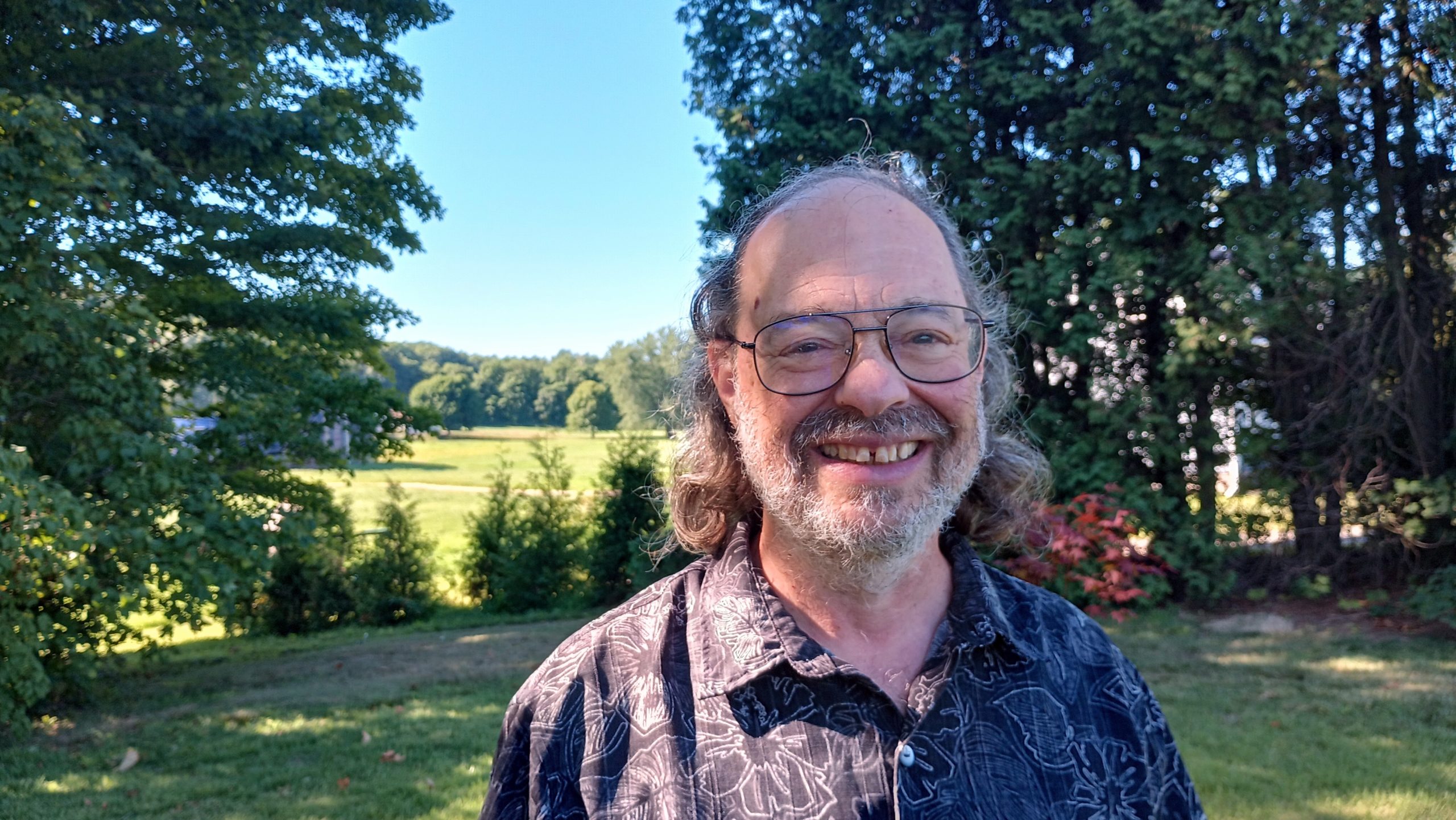
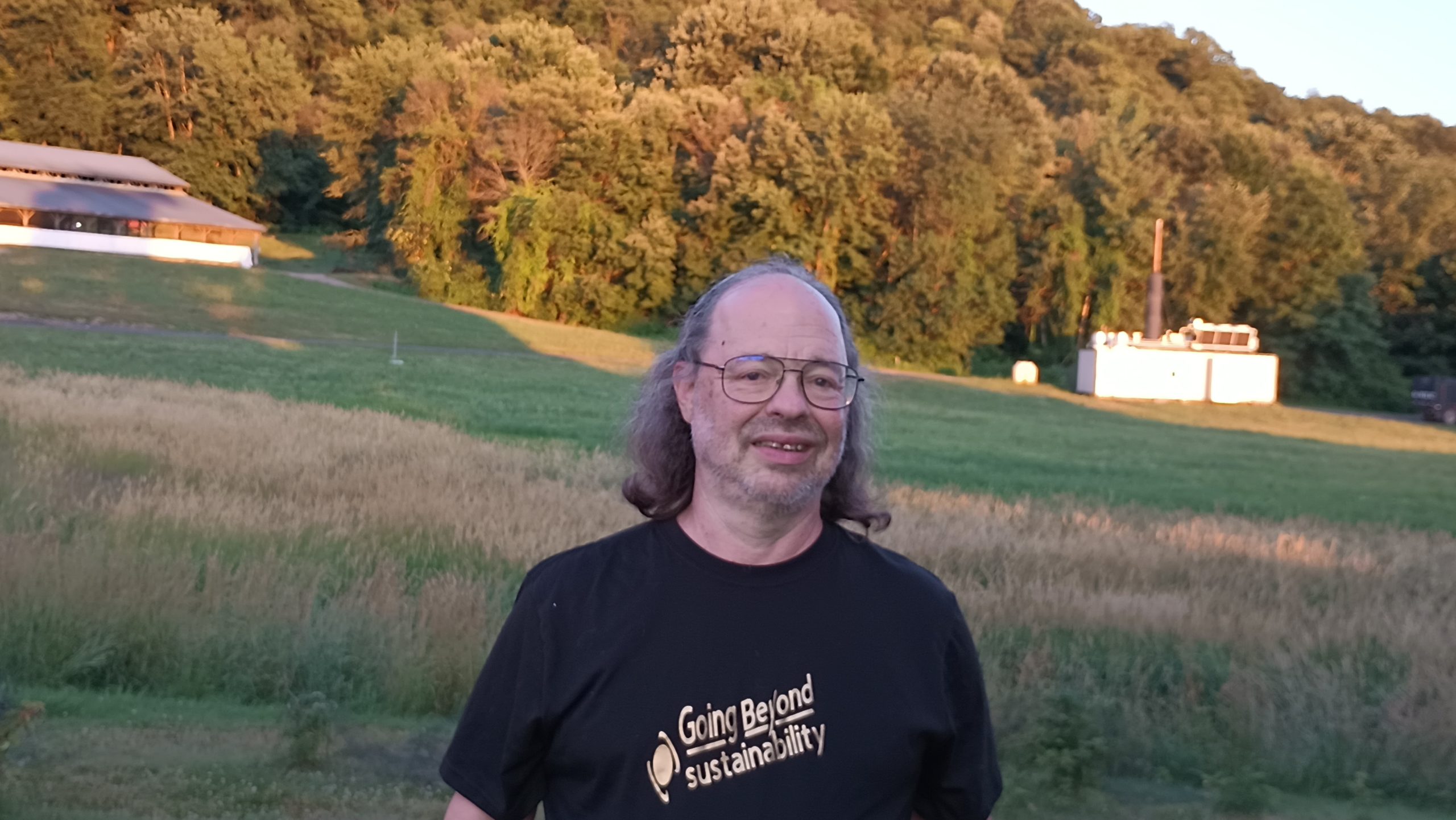
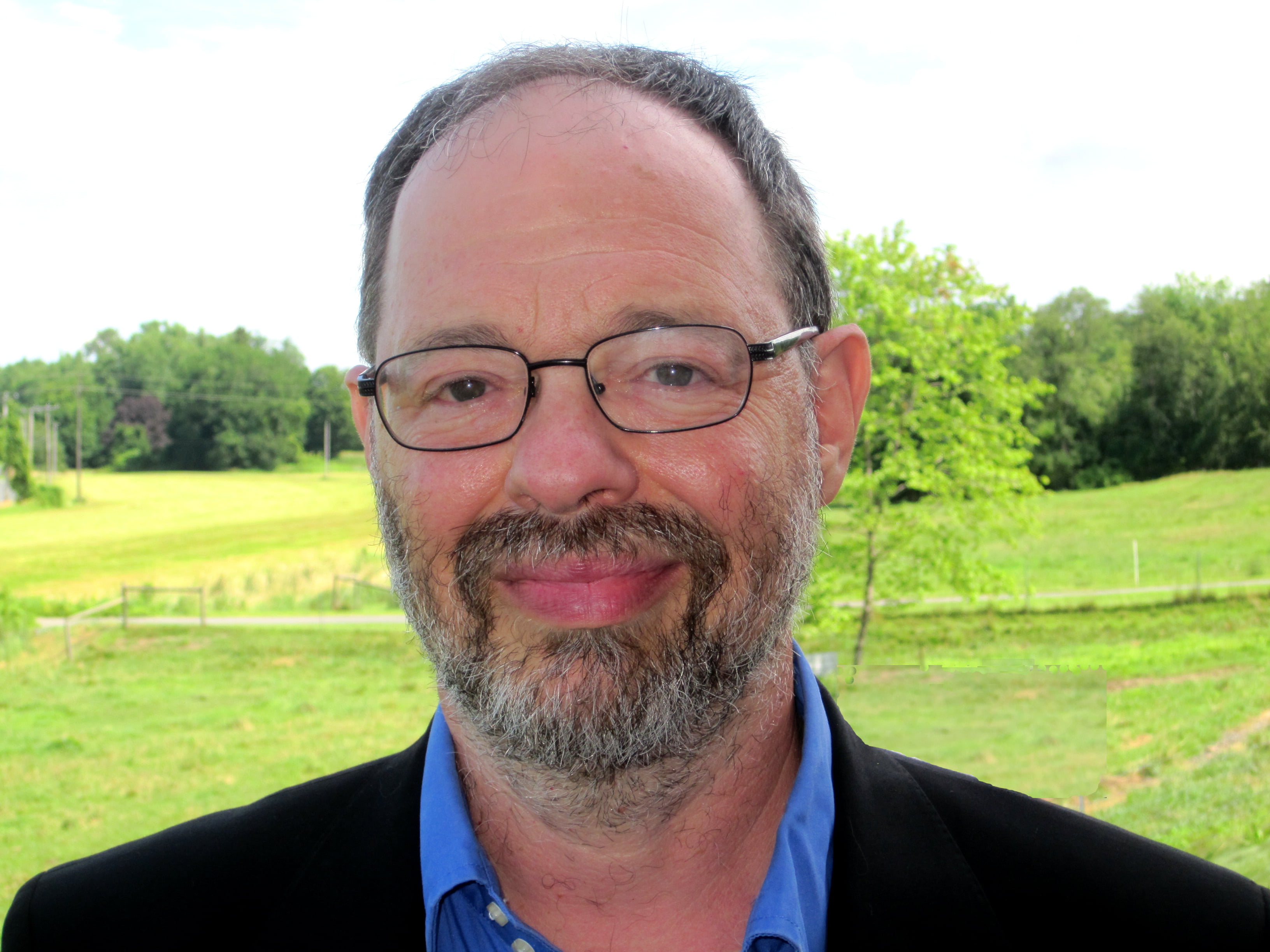
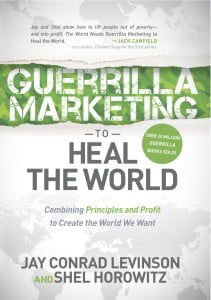
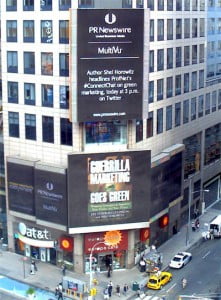
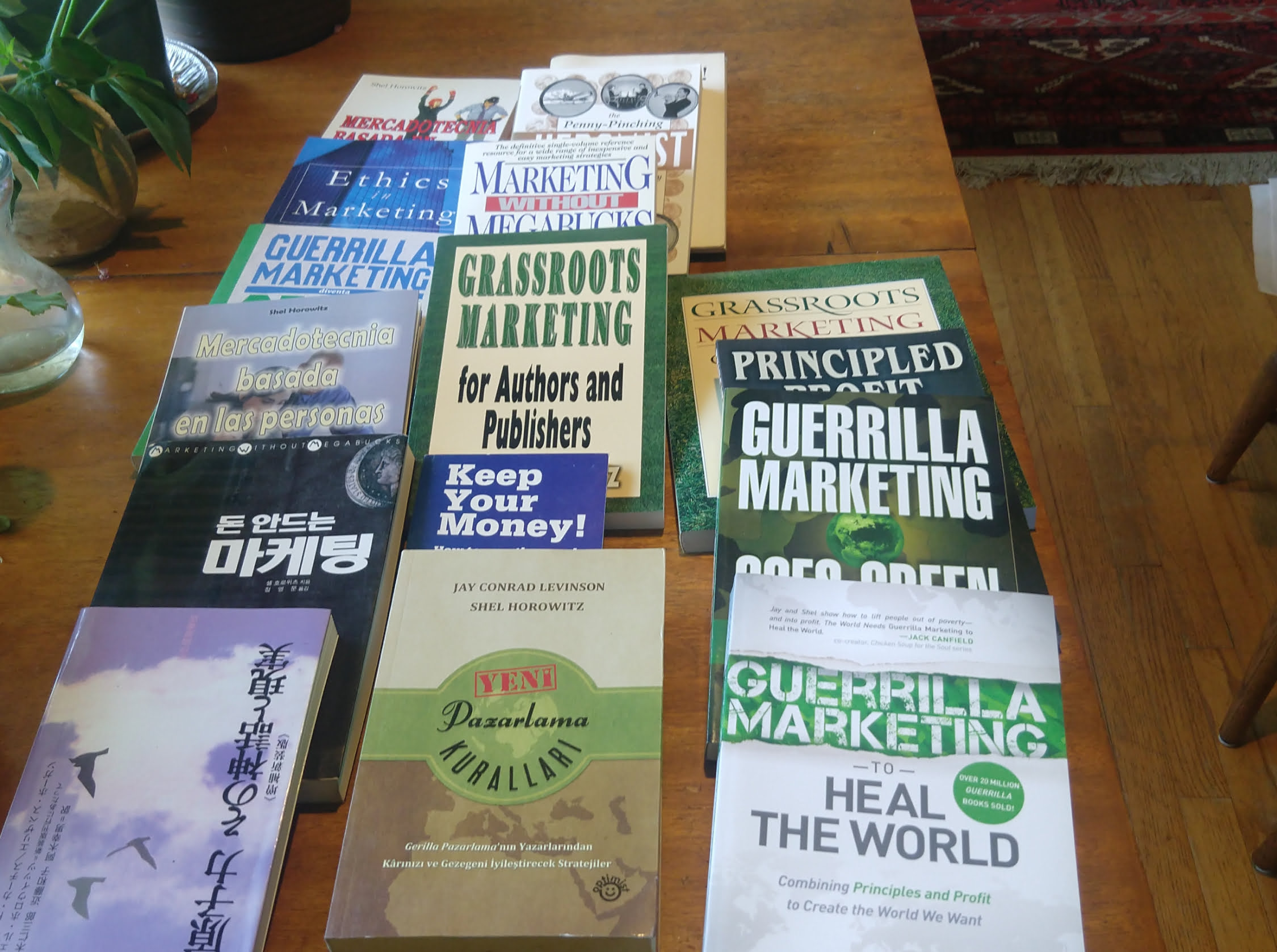
Social change business focus